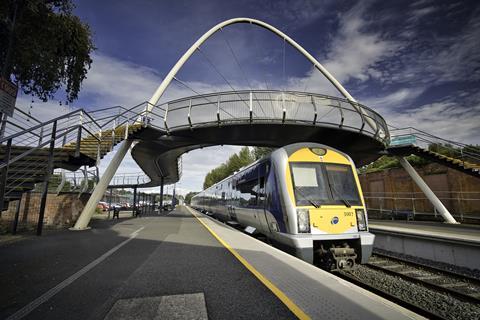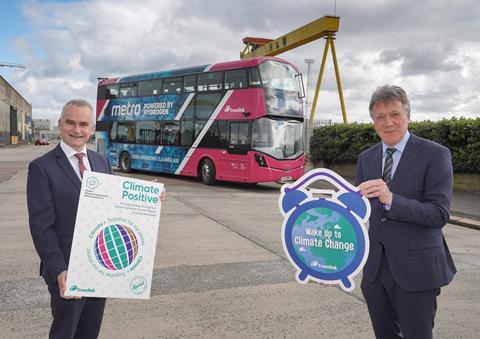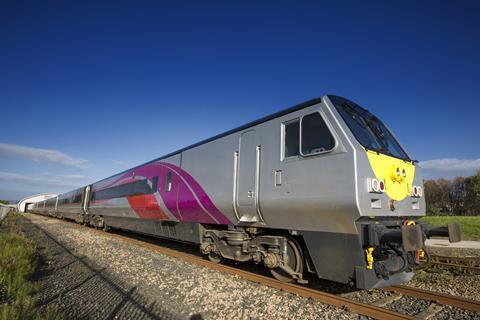
UK: Translink is to assess the options for procuring zero-emission trains in support of its recently published Climate Positive Strategy, which sets out an ‘ambitious’ target to achieve a 50% reduction in train, bus and building emissions by 2030, net zero emissions by 2040 and to go beyond this to be removing carbon dioxide and NOx from the environment by 2050.

‘Our strategy focuses on key priorities including greener vehicles, sustainable infrastructure, biodiversity, the circular economy and active travel strategies’, said Chief Executive Chris Conway when Translink signed the Climate Action Pledge NI on April 28. ‘As we emerge from Covid-19, the business sector has a real opportunity to reset, join forces and tackle the global climate crisis for a green recovery.’
Translink’s NI Railways services are currently entirely diesel operated. A decarbonisation feasibility study and cost analysis are to be undertaken to assess the suitability of zero, low or convertible technologies, and to identify the optimum approach to achieve zero emissions.
NI Railways is currently taking delivery of 21 additional DMU cars ordered from CAF to expand its fleet of regional trains, and the procurement of 15 three-car bi-mode or tri-mode trains is planned for 2027.

The procurement of nine eight-car trains to replace the push-pull trainsets used on cross-border Enterprise services to Dublin is planned for 2026-27, with the business case to be based on the use of zero or low carbon or convertible technologies.
Fleet and operational management systems including driver advisory systems will emphasise energy efficiency and service performance improvement. Translink’s energy strategy will provide a roadmap to reduce emissions from buildings, facilities and infrastructure such as signalling and telecoms, including smart metering, low energy heating and lighting and the use of renewable energy.



